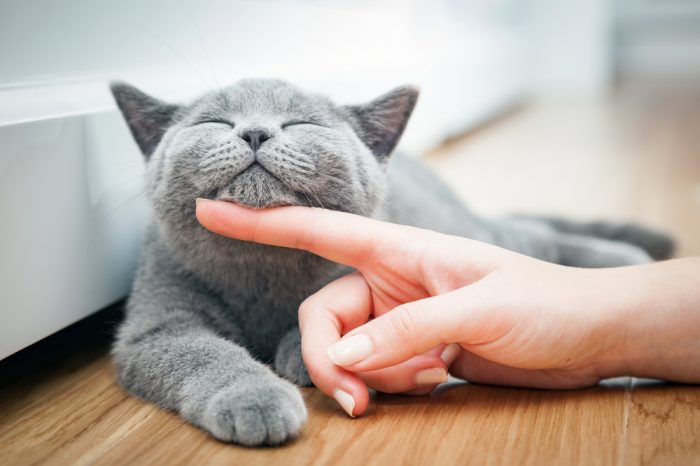A glut of false advertising is flooding the market with cheap products containing only trace amounts of cannabinoids.
For frustrated pet owners looking to medicate their dogs and cats to prevent seizures, ensure calm car rides, reduce arthritis pain, or limit aggression, the promise of hemp CBD can fall short due to swindling fly-by-night companies and their false advertising on products for pets.
Compounding this, is a reluctance by some veterinarians in the United States to recommend hemp CBD for pets. Arguably, there is more evidence to support CBD’s effectiveness in animals than humans (thanks to lab testing), but the amount of false advertising and ludicrous claims by shifty suppliers complicate matters.
No animal doctor wants to prescribe a potentially harmful medication for pets, but with the lack of regulation in the hemp CBD market, well-meaning patients could buy the wrong brand and hurt their furry friend.
The Effects of False Advertising
There are stories galore about the benefits of CBD for cats and dogs. Many pet owners have found that small doses have brightened their dogs’ moods, prevented regular seizures, soothed aggressive behavior, and calmed separation anxiety. False advertising is a direct threat to those success stories.
Why? Because selling snake oil to desperate pet owners damages the entire industry. Your dog can’t experience the placebo effect, so CBD will shows explicit signs of working or not. There’s no mystery psychology at work. But buying fake, low-grade CBD products may leave you feeling like your pet can’t benefit from the medicine. And so you miss out on the chance to help your furry friend. Worse still, fake CBD products can actually harm the animals they’re meant to help.
This echoes the results of a study published in the journal Molecules (2018) [1]Pavlovic, Radmila et al. (2018). Quality Traits of “Cannabidiol Oils”: Cannabinoids Content, Terpene Fingerprint and Oxidation Stability of European Commercially Available … Continue reading showing the same problem in CBD products made for humans. The lack of a regulating authority in the industry means the availability of many sham products at gas stations and head shops across the country. This system allows these cowboys to prey on ignorant consumers.

What Should Pet Owners do?
While the research behind the benefits of hemp CBD for pets is solid, it’s important to remember that the products used in research labs are verified. The CBD used by scientists isn’t the low-quality stuff sold at gas stations. It’s the real deal. So, using anything less means taking a gamble.
While it could be tempting to use regular CBD products, the kind made for human consumption, an article published in Pharmacy Today (2018) Williams, Reagan A. (2018). [2]Pharmacy Today vol. 24 issue 12: 36. https://www.pharmacytoday.org/article/S1042-0991(18)31664-5/abstract CBD oil and our four-legged patients. advises against that. CBD products made for people can include additives that benefit humans (or help the taste) but remain harmful to dogs and cats. For example, the sweetener xylitol is sometimes added to human CBD products as a sweetener. But, xylitol can be lethal for dogs. The same chemical in chocolate that can cause so much harm for canines – theobromine, is also often used in CBD products.
Instead, it’s best to stick to the products formulated specifically for pets.
Dosing for Pets
Hemp CBD products made specifically for dogs and cats also make dosing for pets easier. They’re less concentrated because pets need less CBD to feel its effects.
The standard dose for animals is between 1 and 2 milligrams of CBD per kilogram of animal weight (or 1 mg for every 2.2 pounds). As with humans, the best advice is to start low and go slow. And be sure to consult the vet.
If a dog’s first dose of CBD isn’t calming the anxiety, the next day it can be upped a bit. CBD products applied directly to a dog’s gums should begin working in thirty to sixty minutes. If you’re giving your dog a CBD-laced edible, effects can take up to ninety minutes to kick in.
Cats need less CBD than most dogs, and the effects may kick in faster. But it’s important to make sure plenty of time passes between doses. It’s better to wait too long than to waste product giving your pet more than they needed.

How to Choose a Good CBD Oil for Your Pet
The best-case scenario is to buy pet-formulated CBD products from a veterinarian. Unfortunately, sometimes the veterinarians themselves don’t know the latest research; sometimes they’re not legally allowed to discuss it.
New bills, like California’s Assembly Bill 2215, aim to protect veterinarians who discuss CBD treatment with their patients. But until they’re in place, pet owners have to operate in a buyer beware market.
For those who want to medicate their pets without falling for false advertising, the single best way to choose a CBD oil is to seek out products with third-party verification seals. Independent lab testing is the best way to ensure the CBD your pet consumes is really what it claims to be.
Checking the lab results also gives you a chance to ensure that nothing else in the product could cause an allergic reaction in your pet.
Works Cited:
Williams, Reagan A. (2018). CBD oil and our four-legged patients. Pharmacy Today vol. 24 issue 12: 36. https://www.pharmacytoday.org/article/S1042-0991(18)31664-5/abstract
References



